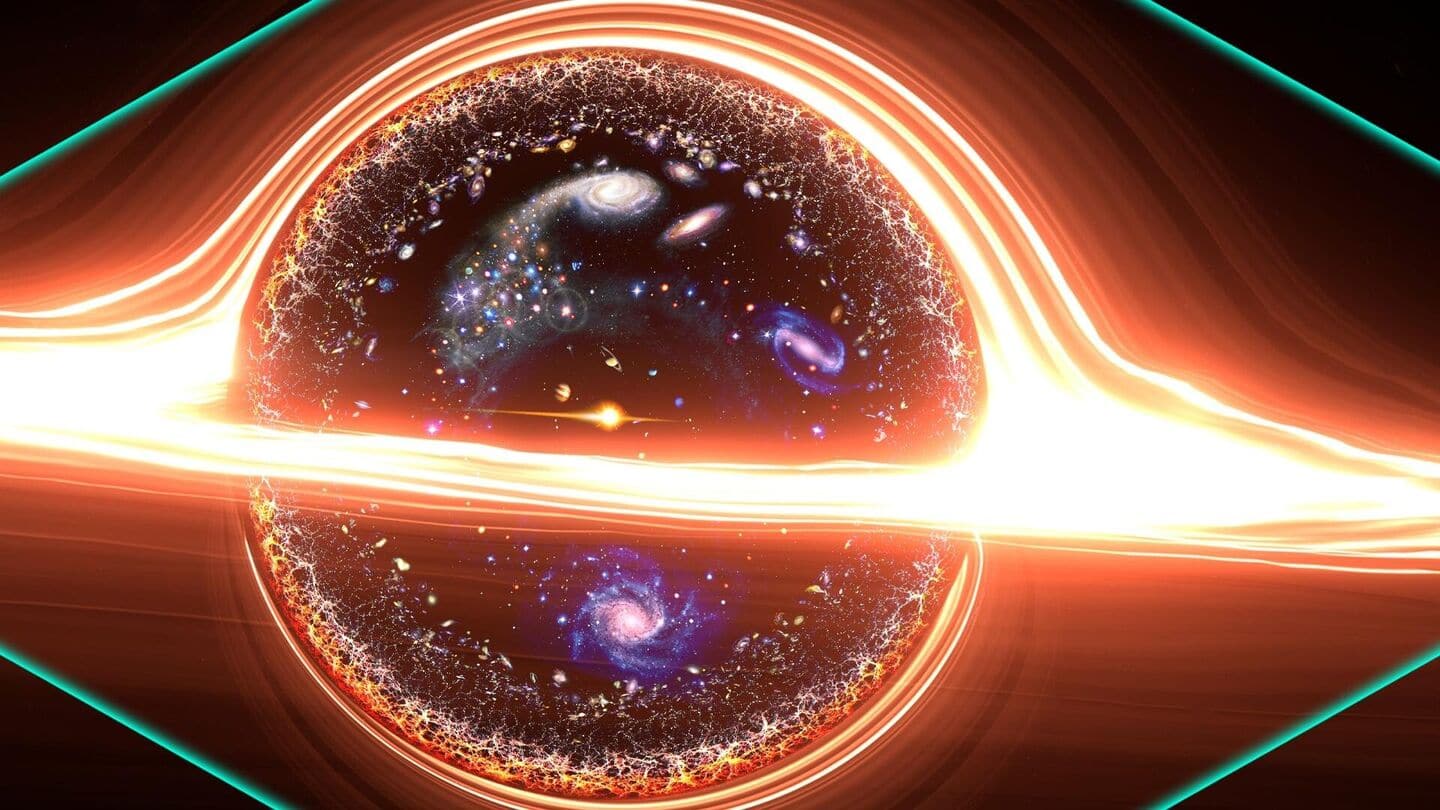
Universe originated from a black hole, not Big Bang: Study
What's the story
A new theory published in the journal Physical Review D proposes that the universe may have originated from a massive black hole rather than the Big Bang. The idea, called the "black hole universe," offers a radical alternative to cosmic origins but is based entirely on known physics and observations. The standard cosmological model has been successful in explaining the structure and evolution of the universe, but it leaves some fundamental questions unanswered.
New perspective
The 'black hole universe' model
The theory posits that the immense gravitational forces within a black hole could compress matter to such an extraordinary density that it would 'rebound' into a new, expanding universe. This idea offers a fascinating alternative explanation for the universe's observed expansion. Unlike the standard Big Bang model, it does not depend on an initial singularity, which poses theoretical difficulties.
Mechanism
Model combines general relativity principles with quantum mechanics
The theory shows that the quantum exclusion principle, which prevents identical particles from occupying the same quantum state, stops particles in collapsing matter from being squeezed indefinitely. This leads to a halt and reversal of collapse, resulting in an inevitable bounce under right conditions. The model combines general relativity principles with basic principles of quantum mechanics without requiring exotic fields or extra dimensions.
Predictions
Predictions of the theory
The model predicts a small but non-zero amount of positive spatial curvature, suggesting the universe is slightly curved like Earth's surface. If future observations confirm this small positive curvature, it would strongly support the idea that our universe emerged from such a bounce. The theory also makes predictions about the current universe's rate of expansion, which align with current observations.
Unanswered questions
Could also explain mysteries like dark matter
The black hole universe theory could also provide answers to other deep mysteries of the early universe, such as the origin of supermassive black holes and the nature of dark matter. These questions will be explored by future space missions, which will study diffuse features like stellar halos and satellite galaxies that are hard to detect with traditional telescopes from Earth.
Cosmic perspective
Are we inside a black hole?
The black hole universe theory also offers a new perspective on humanity's place in the cosmos. It suggests that our entire observable universe lies inside a black hole formed in some larger "parent" universe. This challenges the idea of witnessing the birth of everything from nothing, instead suggesting we are witnessing a continuation of a cosmic cycle shaped by gravity and quantum mechanics.